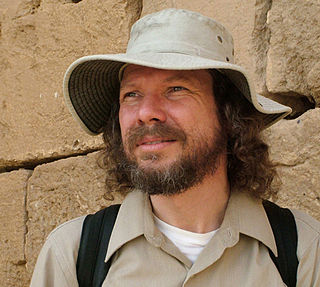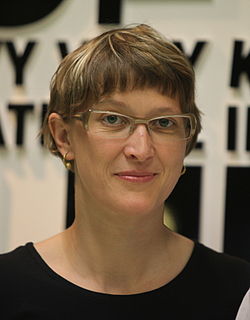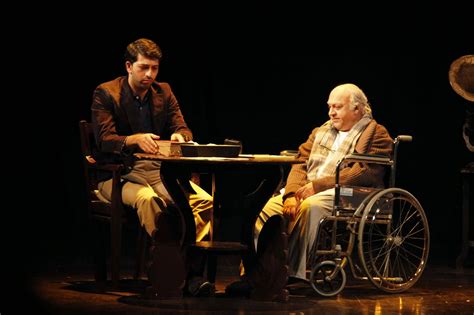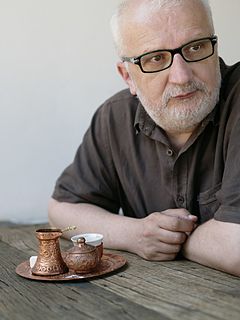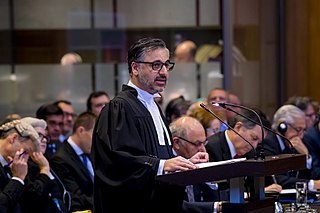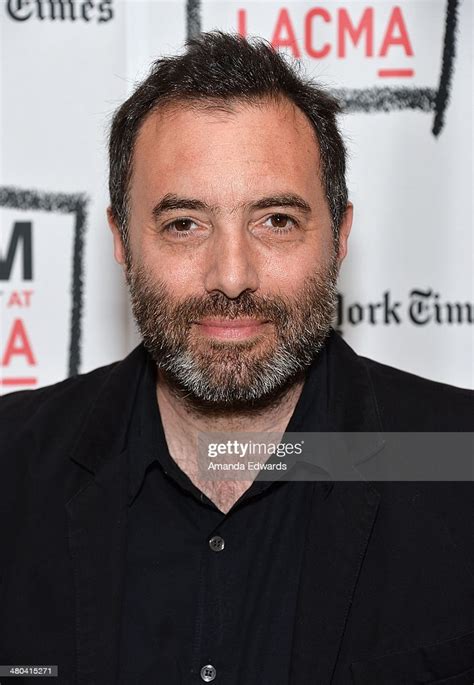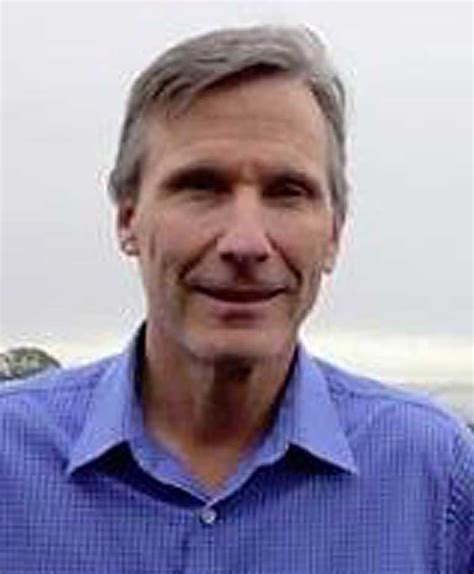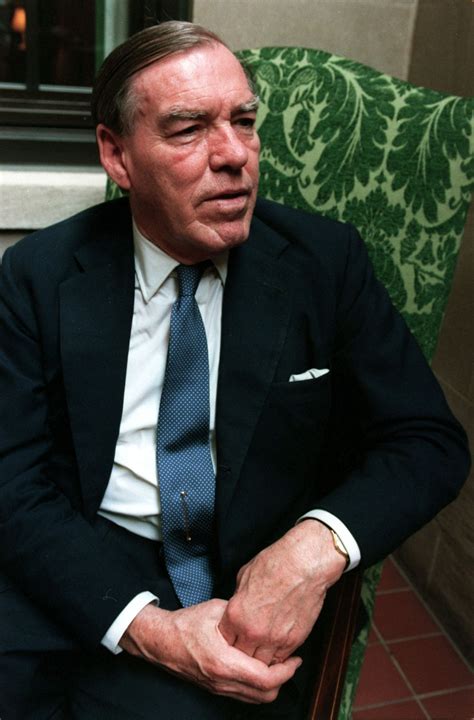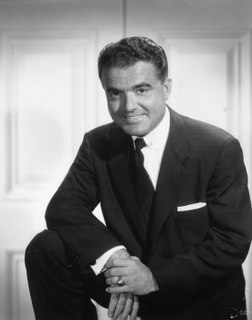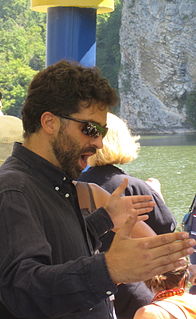Top 120 Bosnia Quotes & Sayings - Page 2
Explore popular Bosnia quotes.
Last updated on December 3, 2024.
Consider that in a galaxy far, far away (otherwise known as the 1990s), President Clinton felt that he had to assure an isolationist Republican Congress - repeat after me, an isolationist Republican Congress - that the 20,000 U.S. peacekeeping troops he promised Bosnia as part of the Dayton Accords would only stay deployed for a single calendar year.
Yugoslavia served as a reminder that the lessons of World War Two were only partially learned. There's a great line someone wrote in the middle of the 1990s, at the time when Clinton was agonizing about whether or not to go into Bosnia: "Everyone says, 'Never again. Never again.' But all they really mean is never again will Germans kill Jews in the streets of Warsaw".
...in the eyes of her oldest friends and colleagues and extended family, she wasn't a painfully thin seventy-five-year-old gray haired woman dying of cancer- she was a grade school class president, the young friend you gossiped with, a date or double date, someone to share a tent with in Darfur, a fellow election monitor in Bosnia, a mentor, a teacher you'd laughed within a classroom or a faculty lounge, or the board member you'd groaned with after a contentious meeting
Some people accused me of being pro-Muslim in Bosnia, but I realised that our job is to give all sides an equal hearing, but in cases of genocide you can't just be neutral. You can't just say, 'Well, this little boy was shot in the head and killed in besieged Sarajevo and that guy over there did it, but maybe he was upset because he had an argument with his wife.' No, there is no equality there, and we had to tell the truth.
In Sarajevo and in Syria, these are societies - in Bosnia, in Serbia, in Kosovo, in Syria - where ethnicities live side by side and intermarry for long periods of time until it becomes valuable to exploit the division. And yes, the division's there because you can always revert back to history, you can always inflame it, but it is manipulated for political ends.
Now that I'm suffering, I feel closer to people who suffer more than I ever did before. The other night, on TV, I saw people in Bosnia running across the street, getting fired upon, killed, innocent victims....and I just started to cry. I feel their anguish as if it were my own. I don't know any of these people. But - how can I put this? I'm almost......drawn to them.
[Albert Camus]didn't have much hope that things would work out, but he wanted them to. Algeria had reached such a degree of violence that once such violence is created there's no more room for reflection. And there's no mediating position. If you look at Bosnia today, the Croats, Bosnians and Serbs, they've all created so much horror that one starts to wonder how these peoples can live together, after having done what they have. Already the violence has reached such a degree that everybody is living in hate, there's no possibility of reflection, no mediating position.
As indicated by the increase in maternal mortality in 2010, right now it's more dangerous to give birth in California than in Kuwait or Bosnia. Amnesty International reports that women in [the United States] have a higher risk of dying due to pregnancy complications than women in forty-nine other countries (black women are almost four times as likely to die as white women). The United States spends more than any other country on maternal health care, yet our risk of dying or coming close to death during pregnancy or in childbirth remains unreasonably high.
I tell young people: If you make a job choice on the basis of something other than your nose or your gut, it's unlikely to work out.... It's perilous to look ahead and be like, "I'd like to be ambassador." I would never have gone to Bosnia or spent years writing about genocide. Do it on the basis of what you can learn.... It's like falling in love. Your whole dating life, you're thinking, On the one hand, on the other hand. Then you meet the right guy, and you're not in list-making mode; you're just with the person you're supposed to be with. Jobs are like that too.
I wrote about Bosnia at the time. Somebody looked out their window and saw gangsters coming down the street and doing ethnic cleansing. I said that was the thing that would happen in the future, someone phoning in what they were seeing on the scene. Whether it's the Huffington Post, the Daily Beast, Drudge Report or the BBC, all those reports, you have to assume there's a real person [who] has credibility.
When you see what goes on in Iraq on a daily basis - more people dying in car bombings - you almost brush it aside after a while. To actually comprehend the human tragedy of these events is overwhelming. We see so many images, but there's always the sense, for Americans, that it's not in our backyard. That's another reason why the war in Bosnia was so fascinating; because it really was in Europe's backyard. It was in Europe. And they didn't do anything about it for years. It took the Americans to end that war, really. That's a shame.
When you invade Grenada, or when you invade Panama to capture a disreputable person, or when you bomb the Bosnia area, you can always find justification for those military actions, but it's really surprising how many times in those 25 years - that's a long time - the United States has interceded, I wouldn't say most of the time militarily, but a lot of those have been military actions.
We know what our policy is regarding the territory of Israel, Kosovo, Bosnia, Macedonia and even Nagorno-Karabakh. What is our policy regarding the territory of the United States? No nation in history has ever been as willing to accommodate those who would dismember it as has the United States of America. Trying to get a straight pro-U. S. comment out of a U.S. elected official is like trying to nail a custard pie to the side of a barn.
No one that has ever been in combat ever wants to see war anywhere in the world. It is horrible. It's horrible looking at the pock-marked walls. It's horrible looking at the flesh embedded on walls in Bosnia. It was horrible looking and interviewing and talking to the kids who lost their parents, because Saddam Hussein decided to feed their parents to the lions in downtown Baghdad. To characterize particularly myself, but other groups, as wanting to advocate a war I think is not only disingenuous, I think it's a patent falsehood intentionally created to stigmatize a group of people.
FAQ regarding my book were not about my use of commas or how the images went berserk, but about the political situation in Bosnia, about guilt and shame, about victims and perpetrators, about reasons, arguments and beliefs that led to the conflict in the first place, etc. All of this needed and still needs answering and ongoing discussions, but I mostly felt overwhelmed and unqualified to articulate anything worth more than personal experiences of the siege, of fear and refuge - all the things which I wrote about anyway.
Let's recall Bosnia in 1995. As we know well, the European peacekeeping contingent, represented by the Dutch troops, did not want to get involved with one of the attacking sides, and allowed it to destroy a whole village. Hundreds of people were killed or injured. The tragedy in Srebrenica is well known in Europe.
If you go to former Yugoslav states, the Balkan states, Croatia, Serbia, Montenegro, Slovenia, the situation is dire. Not to mention Bosnia, which is just run like a colony. The way they used to stand up and sing hymns to President Tito, they now salute the EU flag. It's a very strange transition that we're witnessing in most of Europe, and I don't think it's going to work.
Hillary Clinton is a world class liar. Just look at her pathetic email server statements, or her phony landing - or her phony landing in Bosnia, where she said she was under attack, and the attack turned out to be young girls handing her flowers. A total and self-serving lie. Brian Williams' career was destroyed for saying less.
I saw my job [as president] as to try to move the world from an unstable condition of interdependence toward more integrated cooperative world community. Therefore, my approach was to cooperate wherever possible and to build institutions of cooperation, an expanded NATO, the World Trade Organization, the Summit of the Americas, the Asian Pacific Leaders, all those, the coalition to fight in Bosnia and Kosovo, to cooperate wherever possible but to act alone if we had to.
To many Congressmen and Senators right now, there's a ceaseless antagonism toward Hollywood because politically, it is high-reward and low-risk. So when you can't do anything about poverty or the budget deficit, and you can't deal with Bosnia or the possibility of nuclear explosions in Russia, what do you do? You bash Hollywood and get on the front pages.
My second epiphany came as an intern at the Carnegie Endowment for International Peace. The man I worked for was consumed with what was going on in Bosnia. And the more I knew [about it] the more saddened I was. There were these images of emaciated men behind barbed wire.... It was like, I've got to find a way to do something.
It would be a huge mistake to abandon democracy promotion. Peaceful political change has been enormously successful in the past years in Eastern European countries as well as in countries like South Korea, South Africa, Chile and Indonesia. However, if possible, the use of force is something to avoid except in cases where genocide is threatened, like Bosnia or Libya or with regimes that threaten our security, like the Taliban and Saddam Hussein.
As to whether Marcos is gay: Marcos is gay in San Francisco, black in South Africa, an Asian in Europe, a Chicano in San Ysidro, an anarchist in Spain, a Palestinian in Israel, a Mayan Indian in the streets of San Cristobal, a Jew in Germany, a Gypsy in Poland, a Mohawk in Quebec, a pacifist in Bosnia, a single woman on the Metro at 10pm, a peasant without land, a gang member in the slums, an unemployed worker, an unhappy student and, of course, a Zapatista in the mountains.
Freedom is not empowerment. Empowerment is what the Serbs have in Bosnia. Anybody can grab a gun and be empowered. It's not entitlement. An entitlement is what people on welfare get, and how free are they? It's not an endlessly expanding list of rights - the "right" to education, the "right" to food and housing. That's not freedom, that's dependency. Those aren't rights, those are the rations of slavery - hay and a barn for human cattle.





